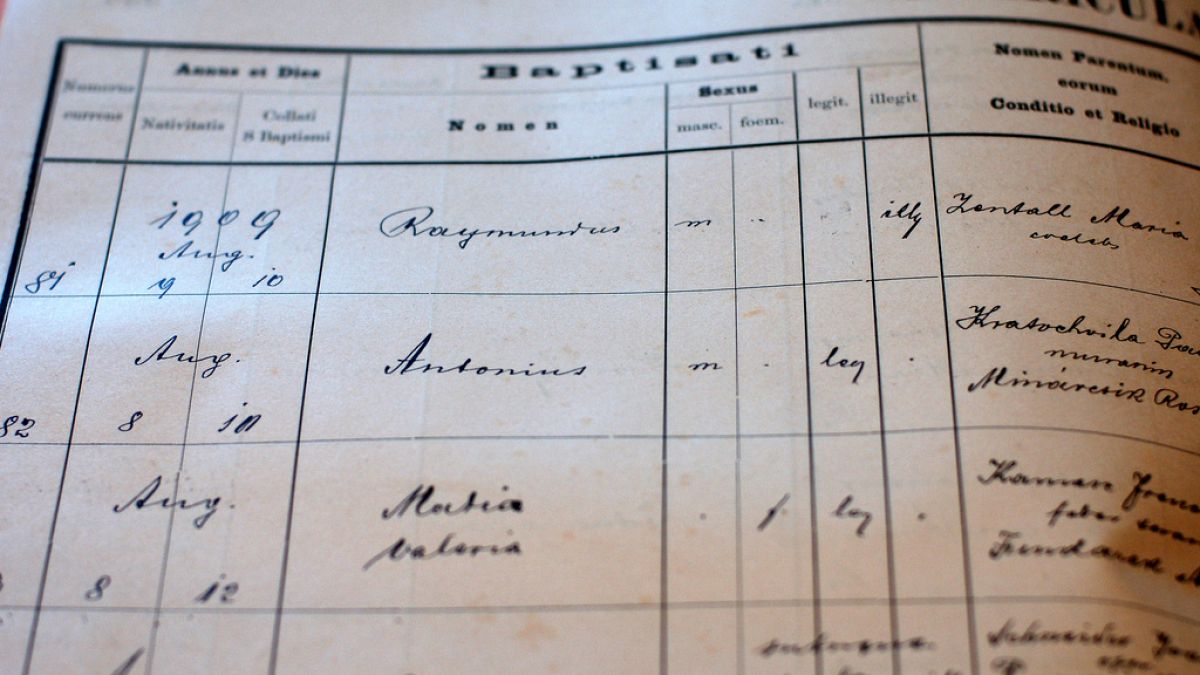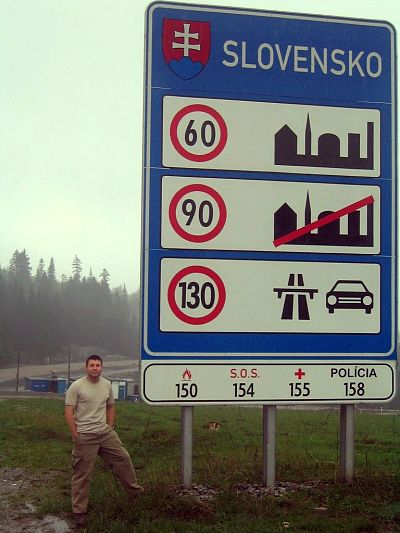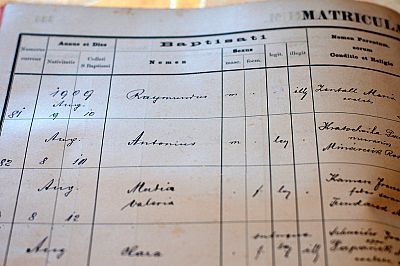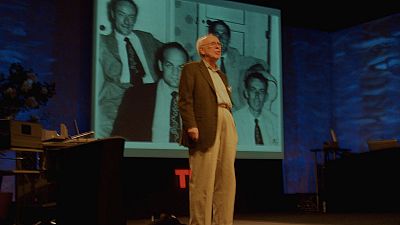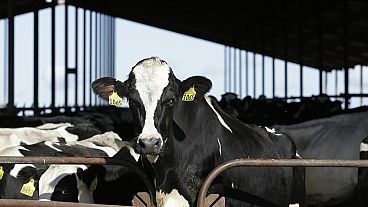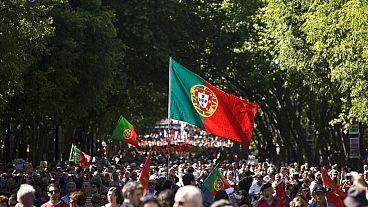A family tree used to take years of painstaking research. But with the advent of DNA testing, more people are discovering their roots and the travel industry is taking notice.
"These are your cousins. You will probably be spending the night with them."
So said the translator after my husband Brian and I arrived at the rural Slovakian home of his relatives, the cousins we'd just learned about. This unexpected visit followed months of chasing a trail to find his grandfather's best friend's daughter in the small northwestern town of Bytča. This also being the early 2000s there were letters — the handwritten paper kind in the mail translated thanks to a volunteer we found by running an ad in the Slovak Spectator — and once on the ground, a University of Zilinia professor's daughter we'd hired to translate and help us find Brian's great-great-grandmother's grave. We'd just discovered that cousins still lived in the area and piled into the rental Opel to just show up at their step.
"Slovensko, Slovensko," they cried as they clutched Brian's cheeks and showed him their snapshots of him as a baby, sent years ago by his grandfather who'd fled communist Czechoslovakia to the United States. An avalanche of food came our way, accompanied by nonstop smiles and eyes shining with tears. They wanted us to spend the night but our translator had to go, and we had reservations awaiting in next-door Poland. Had we known, or been able to plan better, the visit could have been longer, allowed us to engage more. We left with many kisses and promises to return.
This desire to find and connect with our roots is nothing new, but thanks to the availability of DNA testing it's easier than ever before to actually trace that family tree. And findings aren't just passive information to file away. Armed with a new understanding of who they are and where they come from, people are flocking to their family's homelands in such droves that this DNA travel, so to speak, landed on Lonely Planet's list of Top Travel Trends for 2019.
... the interest level has transitioned from a smaller group of genealogy-obsessed people willing to put in a ton of time and work on their own family tree … [to] now you can buy a 23andMe kit in CVS [and] people have information at their fingertips.
Armed with DNA results, people are flocking to their ancestral homes
It's not surprising, said Robin Hauck, director of Business Development and Partnerships with EF Go Ahead Tours. "As long as there's been travel there's been an appetite for visiting where our ancestors are from. What's changed is DNA technology has become so much more accessible, it's become cheaper and cheaper. What that's meant is the interest level has transitioned from a smaller group of genealogy-obsessed people willing to put in a ton of time and work on their own family tree … [to] now you can buy a 23andMe kit in CVS [and] people have information at their fingertips."
FYI
Among this new wave of novice genealogists spurred by their findings to explore their heritage is London-based Lonely Planet editor Christina Webb, who was surprised to learn of her Eastern European roots. "I've since traveled for the first time to a number of destinations such as Poland and the Czech Republic," Webb told NBC News BETTER. "I was particularly drawn to learning about personal narratives — from the street to museums — steeped in the movement of different peoples and cultures in this part of the world."
Webb is also inspired to venture beyond her mother's homeland of Goa, India, which she's visited often. "I feel strongly about being 57.8 percent South Asian and it make me want to take a step out of India's smallest state the next time I visit," she said, "to explore the vibrancy and diversity from Kerala to Delhi, and other nearby nations such as Sri Lanka and Nepal."
Travel companies are jumping on the trend
While many intrepid travelers will forge ahead on their own, an industry is springing up around tailoring guided DNA trips. Go Ahead Tours' Hauck worked with Ancestry.com to to develop an evolving line of small group tours to Europe that come complete with DNA testing and an on-board genealogist.
"[Ancestry] had heard more and more from customers that they wanted to bring their families and go and walk where their ancestors walked and really bring the whole thing to life," Hauck said. "It's just so important for people to fill in in actual living color where they're from and how their ancestors lived. It makes people feel more complete."
I Tried It
The partnership grew out of a need to make heritage travel more widely available. "We found Ancestry had professional genealogists who'd been taking families abroad for years," Hauck said, "but on super-customized trips that cost tens of thousands or a hundred thousand or more for a family to go to these specific places to do an extended journey. They were saying 'most people don't have 60-70 thousand to fly their families first class with genealogist at their side, so how can we work with you?'"
The tour company and Ancestry teamed up to offer guided, family heritage-themed trips to the most popular destinations for DNA travelers — Italy, Ireland, Germany, and Scotland.
How DNA tours work
So what exactly is a DNA tour? The experience starts before the trip with a DNA kit. Once travelers get their results, "you get five hours personalized time with a professional genealogist," Hauck said, who will compile research for each traveler and often offer reading suggestions ahead of the trip. "You also have the genealogist on the tour helping you take that research and use it."
A fringe benefit of traveling with a group, she added, is "you're also on tour with people super interested in the same place." Her pro tip? "Make an effort to get to know the people on your tour because there's a lot of knowledge in that group." Tour participants have even found relatives on the tour itself, she said, and end up traveling on together.
While on tour exploring significant sites in the region there's free time "to peel off to visit a specific, street, school, cemetery or homestead," Hauck said.
But of course it is still a tour with up to 26 people traveling together on a bus. And that requires a certain mindset, Hauck said. While there are advantages like having logistics handled and time in the country maximized (not to mention not being abandoned at the worst possible moment by the translator, as happened to us!), "you have to have your expectation set correctly," she said. "You have to be going for the right reasons — the value and the education. And you have to be ok with when they say 'the bus is leaving at 8:45' you have to be there. Get on board with moving as a group. Wedge yourself in so you can hear."
I have to think some of the magic found in spontaneous, independent travel's mishaps would be missing from such a choreographed excursion. But then again, there's real heartbreak in traveling so far only to miss out on or limit a family connection.
As for our Slovakian cousins, we kept our promise to return, and indeed went back four years later. This time we planned ahead and traveled with Prague-based journalist Petr Kočí — a miracle Craigslist connection who'd generously agreed to not only translate but drive. And this time we were able to have a true family visit, complete with polishing off a bottle of slivovitz made of their own fruit in their community's shared distillery.
Halfway through the bottle one of the cousins paused for a question. "When you travel," he asked us through Kočí, "is it to discover how people are different, or how they are the same?" As we looked around at our long-lost family, their very bones an echo of my husband's, the answer was clear.
MORE TRAVEL TIPS
- Save $520 (or more) on your next flight with these 4 airfare hacks
- How to pack a carry-on (so you don't need to check a bag)
- The top safety mistakes we make when we fly, according to flight attendants
- How beat back flight anxiety
- How to find the best travel rewards credit card for you
Want more tips like these? NBC News BETTER is obsessed with finding easier, healthier and smarter ways to live. Sign up for our newsletter and follow us on Facebook, Twitterand Instagram.
